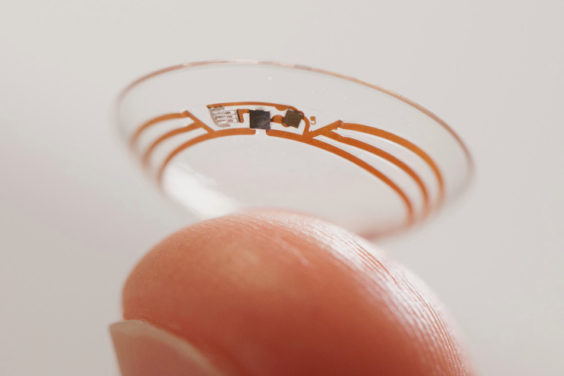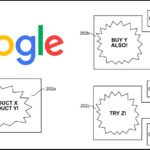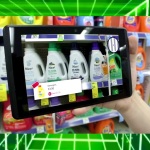Picture this – you pick up a product at the grocery store and glance at the bar code. Then you see all available digital coupons for the product, right before your eyes. You add them to your account, then head to the checkout, with a few old-fashioned paper coupons in hand. And your cashier deducts them from your total, just by looking at them.
What is this, some kind of grocery store of the distant future? Well, the future may be here sooner than you think.
Google is working on something of an upgrade to the former “Google Glass” that could – among other things – change couponing as we know it. Less than a year after ending production on Google Glass and sending the computerized eyewear back to the drawing board, Google has received a patent for a high-tech contact lens.
It’s the latest iteration of various Google experiments with “smart lenses”. An earlier version, patented earlier this year, would measure the glucose levels in the tears of people with diabetes. But the latest version aims to do much more.
The newly-patented lenses would include a microprocessor, and solar cells to provide power. They would be able to communicate with other devices, sharing all kinds of data such as your body temperature and the allergen level in the surrounding environment. And they could also decipher bar codes and coupons.
Users wearing the lenses who look at a product’s bar code “can receive information detailing electronic coupons, pricing, warranty information or the like,” the patent documentation reads. If you select a digital coupon, that information can be transmitted to a point-of-sale device, so a cashier can see the coupon’s terms. Or, if a cashier is wearing the lenses, they can see the terms of your coupons themselves, and apply them to your order just by looking at them.
That would certainly give a whole new meaning to “scanning” your coupons.
Of course, too much technology is not necessarily a good thing. Google Glass wearers faced some backlash, from people who worried they were being recorded without their knowledge. So just imagine if wearable devices were completely imperceptible – you’d never know exactly what a person is doing when they’re eyeballing you in the grocery aisle. And if third parties are able to create apps for the lenses like they did for Google Glass, coupon “decoding” apps could become more prevalent. It would be a whole lot easier to take advantage of “glitches” in coupons if all you have to do is look at a product, and a coupon, to determine if you can get away with using the coupon in a way it’s not intended.
Just because Google has a patent, though, it doesn’t necessarily mean these high-tech lenses are ready for prime time. A Google spokesperson would only offer the company’s standard response to any questions about patents: “We hold patents on a variety of ideas – some of those ideas later mature into real products or services, some don’t. Prospective product announcements should not necessarily be inferred from our patents.”
So scanning your coupons without the need for an actual scanner is an intriguing possibility, that may or may not become reality. If it does, though, the next time you find someone gazing into your eyes at the grocery store – it may be your coupons that they’re really admiring.
Image source: Google












